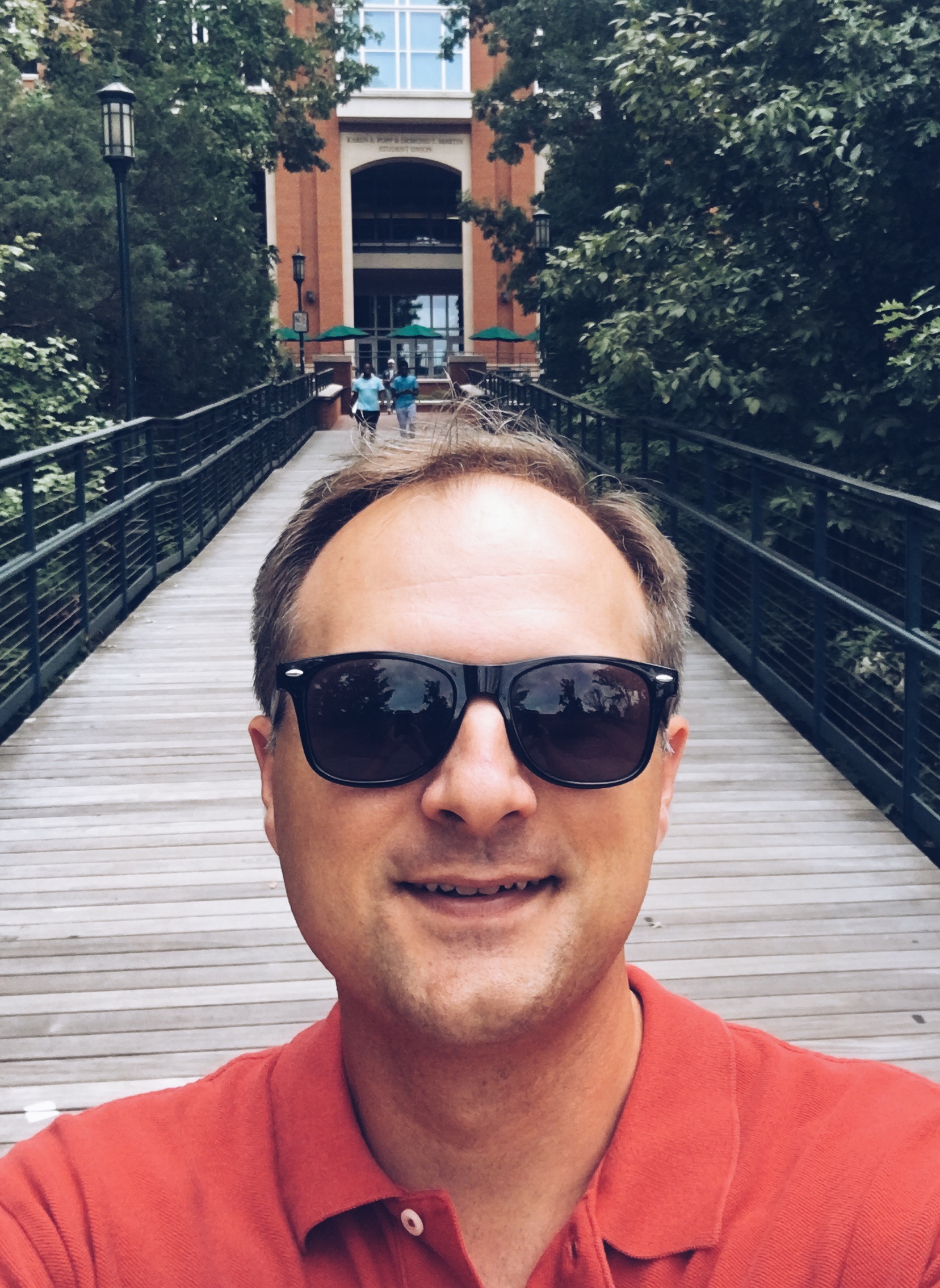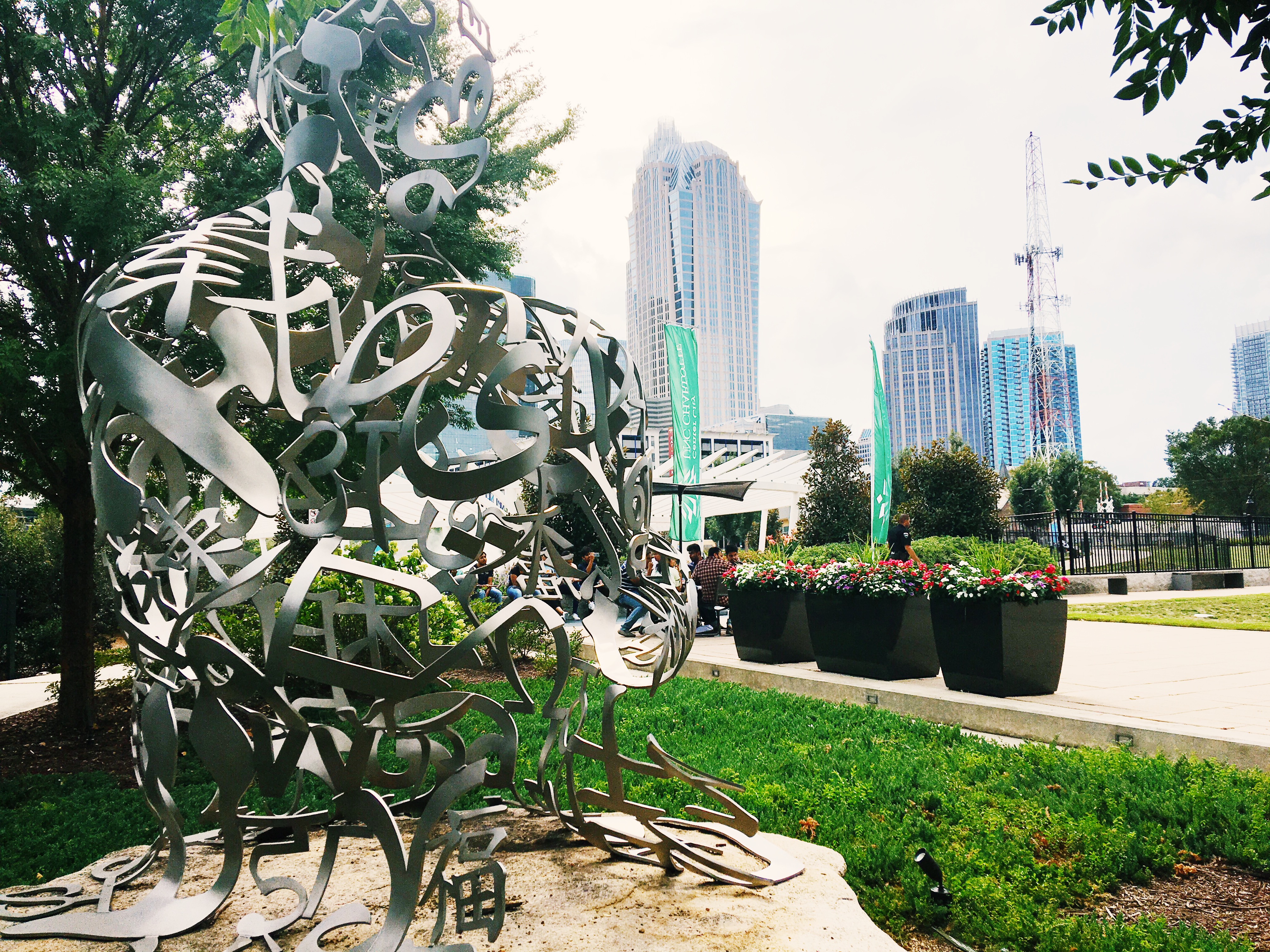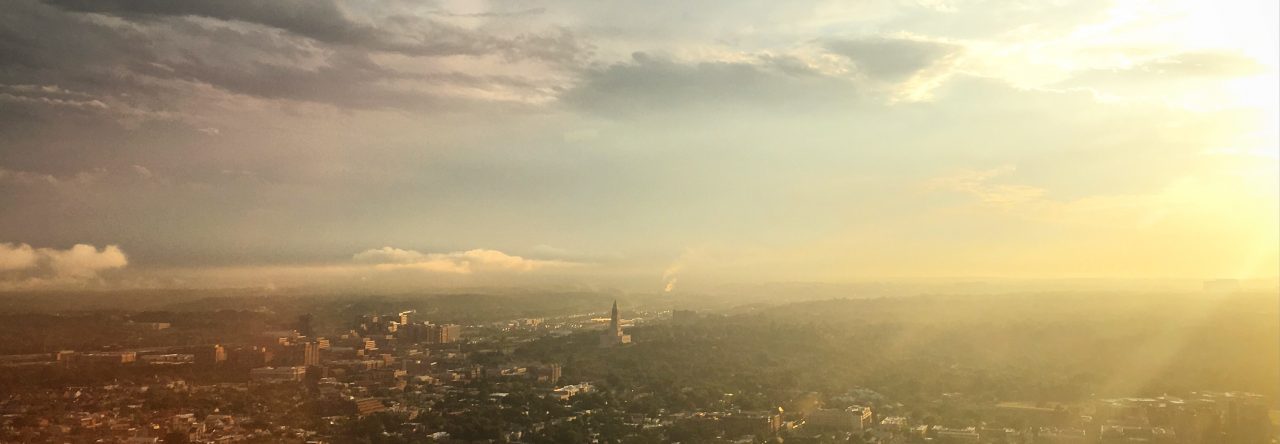ACADEMIA

Portrait of the Grad Student at Orientation
Now, more than ever, I understand that my success as an educator depends upon my ability to discern and lead.
On my desk at Mitchell Community College is a stack of nearly one hundred letters dutifully composed by scholarship recipients. We ask those who receive financial aid to write to the benefactors of their funds, in part because it’s a compelling way to thank donors, but also because connecting them together is often a powerful experience for everyone involved. Reading over these letters is humbling for me; students write about adversities that range from homelessness to finances to learning disabilities. The futures they dream of are bright but pragmatic, and the goals they set down for themselves on paper are intimate in their candor.
These letters and the important lives behind them form the fabric of the decision for why I have spent my career in education. I think of these scholarship recipients as my neighbors. In a sense, I’ve always felt that tie to those education must serve. When I graduated from Western Carolina University in 2003, I was obligated by my Teaching Fellows scholarship to spend the next four years in the classroom. I taught with a youthful and crudely formed ideology for why I thought public education was important and a righteous commitment to teaching my students well. On every syllabus I handed out, I included my personal mantra: Education is an uncomfortable place.
I changed jobs in 2008 and took a position as a fundraiser at Davidson College, a perennial top-ten liberal arts college and a vastly different setting from my humble public school classroom. In a stroke of luck, I started my work there in the twilight before the Great Recession; my early experiences with surf-and-turf donor dinners and open bars were quickly replaced with more austere functions. I remember sitting in a Manhattan Starbucks across from a Lehman Brothers associate three days after the venerable firm collapsed and listening as she described a world and a life suddenly unsound.
I spent nine years traveling the world and fundraising for a college that had promised to its students to meet their full financial need without encumbering them with student loan debt. It was an honorable and fulfilling mission. I worked with Davidson donors to create scholarships, open travel programs, and build buildings. The college’s endowment recovered with the economy, and the fundraising campaign went on.
Outside of my well-heeled, private college employer, however, my colleagues in public K-12 and higher education weren’t necessarily as fortunate. Sweeping budget cuts in North Carolina—and the antagonistic embattlement between public ed and the newly installed conservative legislature—compounded year after year, weakening schoolhouses and campus quads alike.
My job as a private college fundraiser gave me the time and license to participate in defending public education, which I did—writing op-eds for local and even national publications, speaking at political meetings, and helping organize a bond referendum group into a political action committee supporting public education. I was part of a large, messy melee of educators, but in the end, I couldn’t help feeling we were all losing.
When a recruiter called me in October of 2016 to discuss my interest in applying for Vice President for Advancement at Mitchell, I considered it a good time to assess my body of work in education and go through the exercise of interviewing for the next step. I didn’t think I’d be considered as a viable candidate and looked at the process as a learning opportunity. We were in the midst of a contentious presidential election, and I was struck by the growing mistrust in our society of higher education—especially of the elite, private, liberal arts kind.
Mitchell eventually offered me the job, and I felt a compulsive, guttural reaction to say yes. I live in Statesville, the seat of Iredell County, and my neighbors are mostly conservatives who want to make America great again. I genuinely believe that the outcome of the 2016 election came as the manifestation of an angry yawp, a cry borne from the conviction that its endowed American opportunity had been stolen away. Though its targets are sometimes misinformed, I am convinced the root cause for this anger is legitimate; although we claim to live in a time of great economic recovery following the recession, my neighbors—and here I am thinking of every shade and diverse background—haven’t equally shared in its windfalls. Most of my neighbors lack education beyond a high school diploma; the ones who go on to obtain a four-year degree often don’t return. Statesville feels awash in low-wage, service sector jobs, and the prevailing perception is that Statesville’s best days are long behind it.
I’d rather work to change this narrative than believe or invest in it. In my first months at Mitchell, I found that the county’s manufacturing and health care sectors were actively growing and hiring anyone we could send into good jobs with benefits. Small businesses, hidden all around our county, are eager to grow. Despite this boom, though, hiring managers frequently told me that they struggled to find workers with the right preparation and skillset. The disconnect between these well-paying and scalable careers and the under- or unemployed workers in our community who might take them is frustrating.
In my work as a community college administrator and fundraiser, however, I am afforded the opportunity to fix that and other problems afflicting our institution. Now, more than ever, I understand that my success in this job depends upon my ability to discern and lead. That’s why I am seeking to continue my education with the Master’s of Education in Educational Leadership program at UNC-Charlotte.
Education—public, private, K-12, higher—is in the midst of profound change. Shifts in technology and pedagogy have upended traditional teaching models. The economy of education might well be a bubble ready to pop. Students bring increasingly diverse learning needs with them into the classroom. And education, our best means of enabling a workforce, filling souls with humanity’s finest stuff, and driving innovation and creativity, must react. Students are depending on education to react—for their prosperity, for democracy, for social mobility, and even for improving mental and physical health.

Jaume Plensa in Uptown Charlotte
I was attracted to UNC-Charlotte’s Educational Leadership program because its curriculum addresses a wide range of topical issues in higher education, issues whose practicality will serve me well as I work and study concurrently. Courses in current college leadership issues, budget and finance matters, and the history and place of our community college system appeal to my current work and are widely applicable as I continue my career in education. My goal is to grow and advance as a college administrator, perhaps one day even leading an institution. I believe Charlotte’s faculty will be an integral part of realizing that goal, and I would be proud to represent Charlotte’s program as an alumnus.
Education is an uncomfortable place. I attribute this lifelong koan of sorts to a college friend, but it has followed me in every setting in my career. I think of my earliest high school students, of the investment banker I met for coffee, even of the single mom who wrote a scholarship thank you letter so moving it brought tears to my eyes. They are all my neighbors, and I am compelled to serve them the best way I can in my career. I believe that my studies in UNC-Charlotte’s Master’s of Education in Educational Leadership program will help me do that, and I look forward to the opportunity to join its faculty and cohort in scholarship.
AUTHOR’S NOTE: The above formed the majority of my personal statement, which I supplied with my application to UNC Charlotte’s Graduate School. It has been slightly edited for publication here.


Leave a Reply